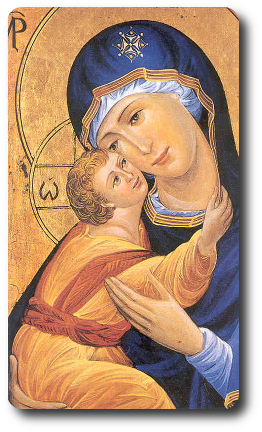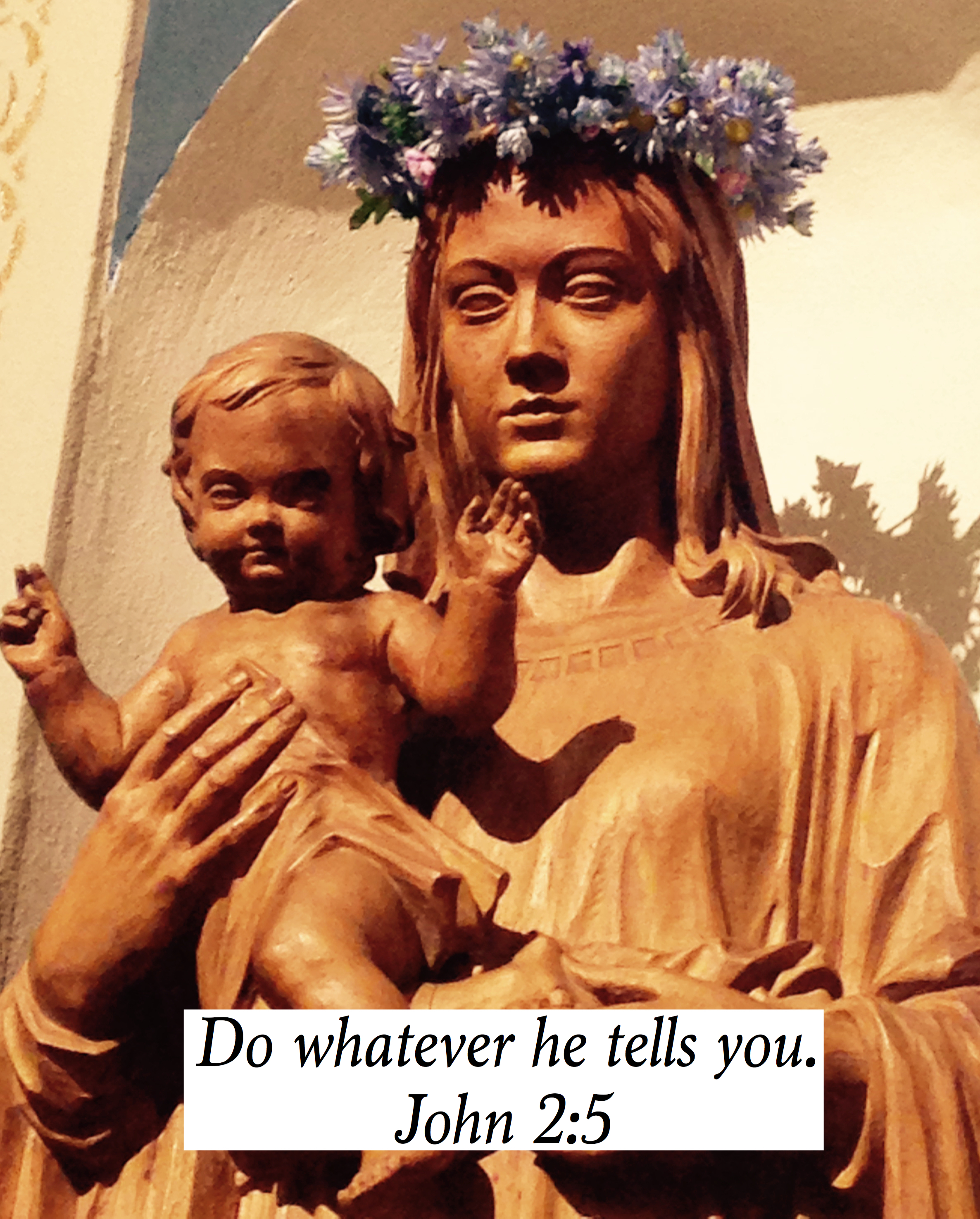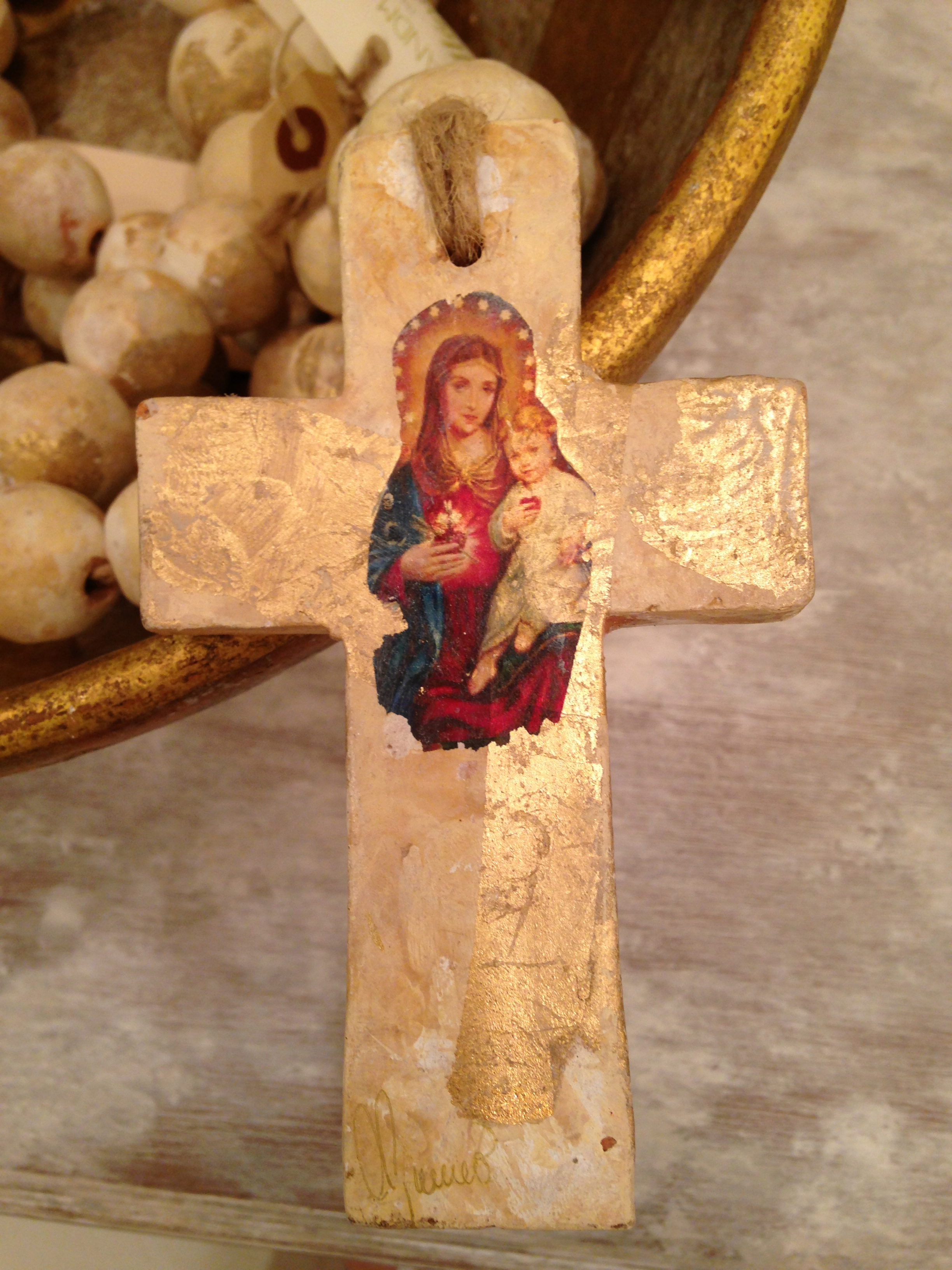 Feast of the Holy Name of Mary
Feast of the Holy Name of Mary
For many years, I have tried to explain to my Protestant friends how and why Catholics love Mary. I came across this exquisite reflection by Thomas Merton this week in his book, "New Seeds of Contemplation." He says it much better than I could ever hope to do, so I share this with you on this special feast of Our Lady. May we all come to resemble Jesus by resembling Mary, whose poverty, hiddenness, and total abandonment to God made her a perfect instrument of His glory.
Blessings and grace to you! Judy
Mary alone, of all the saints, is, in everything, incomparable. She has the sanctity of them all and yet resembles none of them. And still we can talk of being like her. This likeness to her is not only something to desire – it is one human quality most worthy of our desire: but the reason for that is that she, of all creatures, most perfectly recovered the likeness to God that God willed to find, in varying degrees, in us all.
It is necessary, no doubt, to talk about her privileges as if they were something that could be made comprehensible in human language and could be measured by some human standard. It is most fitting to talk about her as a Queen and to act as if you knew what it meant to say she has a throne above all the angels. But this should not make anyone forget that her highest privilege is her poverty and her greatest glory is that she is most hidden, and the source of all her power is that she is as nothing in the presence of Christ, of God.
This is often forgotten by Catholics themselves, and therefore it is not surprising that those who are not Catholic often have a completely wrong conception of Catholic devotion to the Mother of God. They imagine, and sometimes we can understand the reasons for doing so, that Catholics treat the Blessed Virgin as an almost divine being in her own right, as if she had some glory, some power, some majesty of her own that placed her on a level with Christ himself. They regard the Assumption of Mary into heaven as a kind of apotheosis and her Queenship as a strict divinization. Hence her place in the Redemption would seem to be equal to that of her Son. But this is all completely contrary to the true mind of the Catholic Church. It forgets that Mary's chief glory is in her nothingness, in the fact of being “Handmaid of the Lord,” as one who in becoming the Mother of God acted simply in loving submission to His command, in the pure obedience of faith. She is blessed not because of some mythical pseudo-divine prerogative, but in all her human and womanly limitations as one who has believed. It is the faith and fidelity of this humble handmaid, “full of grace” that enables her to be the perfect instrument of God, and nothing else but His instrument. The work that was done in her was purely the work of God. “He that is mighty hath done great things in me.” The glory of Mary is purely and simply the glory of God in her, and she, like anyone else, can say that she has nothing that she has not received from Him through Christ.
As a matter of fact, this is precisely her greatest glory: that having nothing of her own, retaining nothing of a “self” that could glory in anything for her own sake, she placed no obstacle to the mercy of God and in no way resisted His love and His will. Hence she received more from Him than any other saint. He was able to accomplish His will perfectly in her, and His liberty was in no way hindered from its purpose by the presence of an egotistical self in Mary. She was and is in the highest sense a person precisely because, being “immaculate,” she was free from any taint of selfishness that might obscure God's light in her being. She was then a freedom that obeyed Him perfectly and in this obedience found the fulfillment of perfect love…
In all the great mystery of Mary, then, one thing remains most clear: that of herself she is nothing, and that God for our sakes delighted to manifest His glory and His love in her.
It is because she is, of all the saints, the most perfectly poor and the most perfectly hidden, the one who has absolutely nothing whatever that she attempts to possesses as her own, that she can most fully communicate to the rest of us the grace of the infinitely selfless God. And we will most truly possess Him when we have emptied ourselves and become poor and hidden as she is, resembling Him by resembling her...
This absolute emptiness, this poverty, this obscurity holds within it the secret of all joy because it is full of God. To seek this emptiness is true devotion to the Mother of God. To find it is to find her. And to be hidden in its depths is to be full of God as she is full of Him, and to share her mission of bringing Him to all men.








